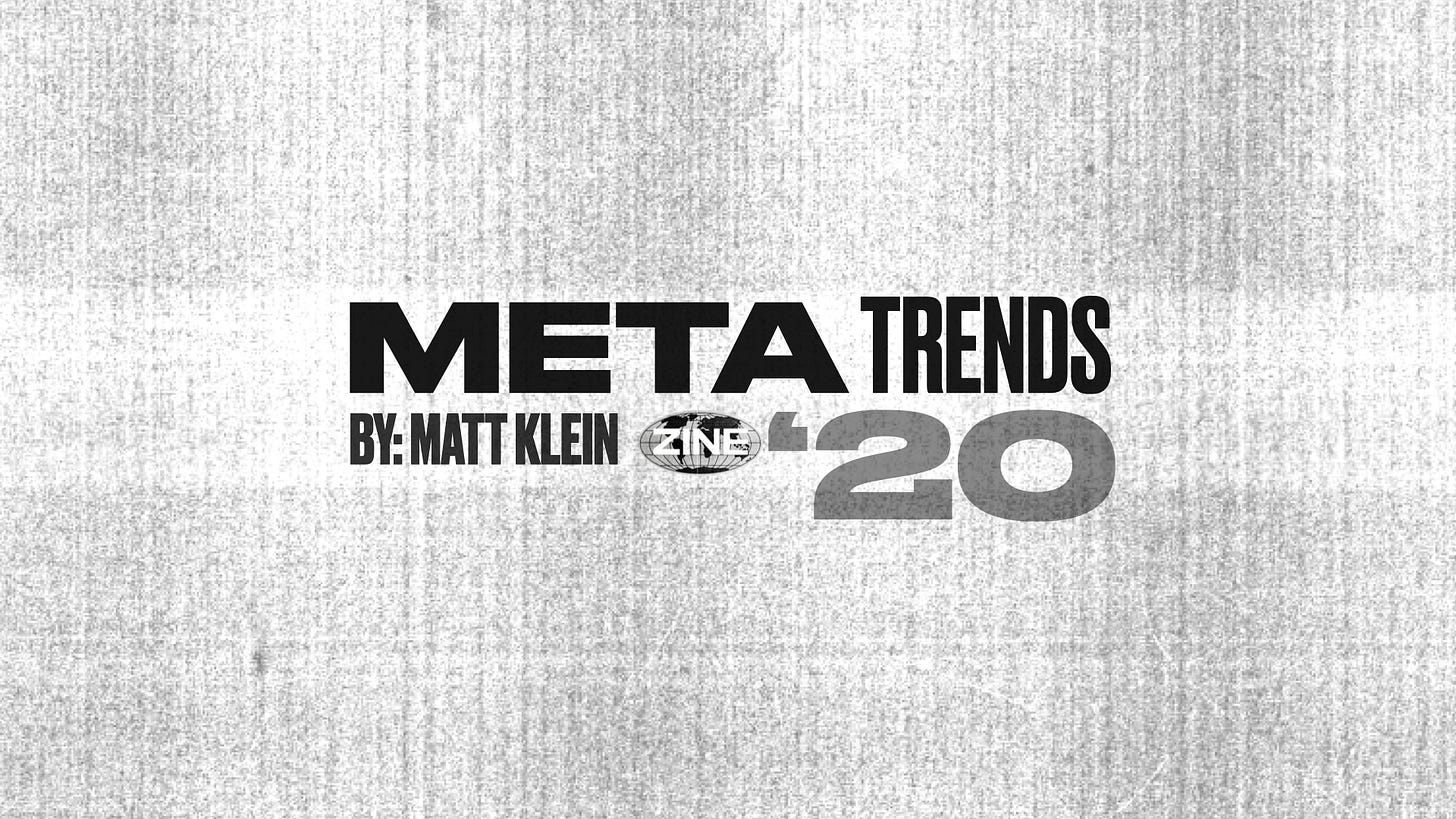The META Trending Trends: 02020
An Analysis of 30 Global Trend Forecasts → 11 Most Reported Social Shifts
Are You Chasing the Puck?
02020’s Prologue
For the last couple years I’ve made it a tradition to read every available trend report and conduct a meta-analysis, identifying the most recurrent, cultural trends for the year to come.
This year, the biggest yet, I combed through 500+ trends from 30 reports by: Deloitte, Google, Forrester, Gartner, Trend Watching, Trend Hunter, Accenture & Fjord, Frog, Kantar, Facebook IQ, Pinterest, Mintel, Twitter, Edelman, Future Today Institute, Mindshare, Springwise, CB Insights, Global Web Index, Foresight Factory, JWT, Carat, Hubspot, Econsultancy & Adobe, WGSN, Isobar, Ford, Landor, The Future Laboratory & Daniel Eckler. (Good luck tracking these down with link rot.)
Why do this? Because collecting the reports and sharing them in a folder is one nice gesture, but reading them all and sharing what’s most important is another. Secondly, conducting a meta-analysis increases our “sample size” of trends and accounts for individual author bias, allowing us to recognize what’s agreed upon. We can calculate reliability as a proxy for accuracy.
After my analysis, I’m excited to share the top 11 prevalent, overlapping trends for 2020. Below, you’ll find the most recurrent trend themes, personal descriptions, how each organization named their trend, and starting this year, how the trend is manifesting and how to lean into each.
Before diving in, three high-level observations:
First, over my last three analyses, several trend themes continue to thrive: Environmental Concerns, Prioritized Mental Wellness, Evolving Identity Boundaries, and A Physical-Virtual Blur. For three years straight, these remain the most ubiquitous subjects. Most meaningful, I believe the thread which ties these themes together is that they revolve around humanity — our habitat, ethics, mental state, sense of identity and role alongside tech.
Second, many of the +500 reported trends each year feel synthetic. In other words, nearly all “trends” feel propped up and perpetuated by business. Stop trying to make AR-shopping happen — it’s not going to happen. Cultural movements only flourish when there’s innate energy, i.e. organic behavior. There remains no need nor want behind AR-shopping, therefore it doesn’t thrive... this is despite +20 reports promising it will each year.
Third, while these authors rely on reporting existing, surface-level signals, no one notes what’s not happening yet — movements beneath the surface. These reports illustrate where the puck is, not where it’s going next. It’s valuable to analyze the former, but invaluable to do the latter if we’re to strategize. Two catalytic events will transpire over the next year, which will re-model culture as we know it, however, not one report acknowledged them: The 2020 Presidential Outcome and The U.S.’ Next Recession. Both will catastrophically impact all consumers (their values, interests, and purchasing decisions) as well as all business verticals. However, because these events haven’t occurred yet, it’s seemingly difficult to report on. But such moments should not be neglected if we’re to plan ahead as businesses. After all, culture moves on even if we’re not ready.



